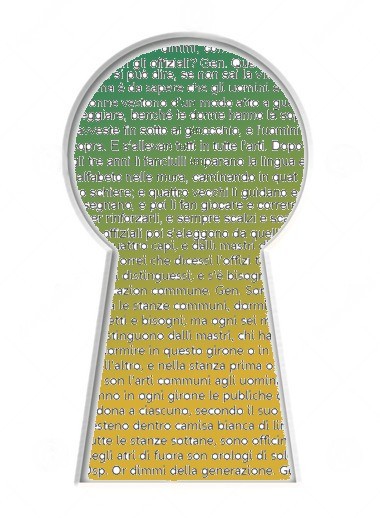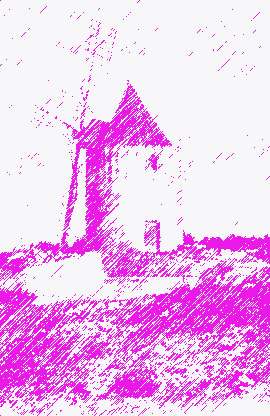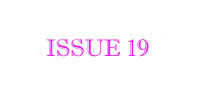|
Reconciling Oneself Through “The Keys to the Jail”
“The Keys to the Jail”, by Keetje Kuipers. Rochester, NY: BOA Editions, Ltd. 2014. 92 pages.
Many times a poem describes a component of an individual's life in some manner, but poetry that forces the reader to step outside herself or himself and look objectively upon the work can be a gymnastic that is cathartic for the soul. In “The Keys to the Jail”, Keetje Kuipers divides her latest collection of poetry into six sections which describes stages of social roles and survival tools, all which result in a definitive sense of individuality. Not many people will admit to playing the social role of a “Me” for it seems much easier to provide a laundry list starting with “I am a mother, a daughter, a wife” and so on, if only to appear to be an active partaker of social cohesion. More importantly, the journey of life that each individual must traverse alone – and at times it can get lonely, as in the poem “The Loneliness” - often has unexpected results which can make or break the discovery of one's true person and be content with who one is.
The cover of “The Keys to the Jail” is an artistic rendering of Leavenworth Federal Prison, which is located in Kansas, complete with heavy iron chains rusted with age, and the number 68 on the padlock hanging from the chain. The walls are chrysocolla in color, surrounded by even more rust, the dreariness of scripted life in which each individual attempts to escape from but rarely breaks free. Rare is it when a book's cover like “The Keys to the Jail” both starts the reader on the journey throughout the pages and sums up the destination at the same time. The journey in this case is inward, the exploration of who one really is, the stepping outside of oneself, and being able to successfully return, a self-reconciliation ending in a state of peace. The very title of the book reminds me of the Scott-Dyer song “Looking for Me”, with its line:
“Read all the stories of my pages,
read all the words from front to back”
with the events of one's life directly in front of oneself, ready to be discarded or accepted at face value.
So why the concept of jail? Being imprisoned in oneself due to external social expectations which begins from birth more often than not can lead to personal dissatisfaction, an internal emptiness in need of fulfilling. Fulfillment in this case can be a deep connection between two people, a meaningful touch as described in Keetje's poem “Dolores Park” which provides a glimmer of hope for the human race.
The poem “The Ocean” is a metaphor for all life originating from water, life coming forth to be trapped in its environment no matter where it moves to. Here Keetje describes a woman who seems to be surrounded by the ocean no matter where she goes: a city, a desert, a prairie. The subject feels that if she dies, she will return to the ocean. “Please Check Under the Bed” may bring memories from all readers about monsters hiding under the bed, but in the subject's case, the unknown frightful being is a female like herself, one who is stunningly beautiful (not exactly Medusa here), one who seems to disappear completely within the dominating ego then having to live her life the rest of the way she presently is. “Every Bright Thing” brings to mind a long-recurring dream of being in a dark house with no light of any kind – candle, flashlight nor bulb – searching and groping around to escape from the darkness which comes after so many years. What eventually causes such dreams to permanently end? The answer to this – like other personal experiences can be found in this collection of poems.
Rich in imagery and metaphors, Keetje's poems take on a life of their own – as living entities which the reader can easily relate to, regardless of one's social status or personal experiences. “The Keys to the Jail” is an escape for an escape from life, one's individuality, and reconciling one's life with oneself in a manner that makes the poems in this collection pleasurable to read.
*********************
Available, by Louie Clay
Wobbly manger, speckled slightly with sheep
dip, stuck with bits of straw and prickly
angel hair. Smells a tad like joss sticks.
Unsuitable for fashionable creche.
Authentic.
Contact Joseph, 1-800- 243-2836. Telex:
EFRATA. Email: Carpenter@INN.il. MasterCharge,
American Express, and Visa not accepted.
Queer poet Louie Clay (né Louie Crew), 77, is an Alabama native and an emeritus professor at Rutgers. He lives in East Orange, NJ, with Ernest Clay, his husband of 40 years.
Editors have published 2,373 of Louie Clay's poems and essays.
You can follow his work at http://rci.rutgers.edu/~lcrew/pubs.html.
See also en.wikipedia.org/wiki/Louie_Crew#Queer_Poet_and_Writer The University of Michigan collects Clay’s papers.
*********************
Endling, by Reilly Blackwell
The last time your lips touched mine,
the last time I said I loved you
the last time we touched or
spoke or
sang.
Spheres like water droplets,
held together by tension,
mark the ends of eras.
They bead the cords on the Graeae's loom,
run along the strings of the lutes that play our story-songs.
We don't need a marker to know we've died
but we've always wanted them on our graves,
and we always have needed
beings, presences, shapes, markers,
significances that tell us
it is time to move on.
*********************
City of the Sun Through the Keyhole, by Julie Kovacs

*********************
Waiting for the Snow to Stop, by Michael Keshigian
The tree line of tall hemlocks
between expansive colonial style homes
demarcate the landscape
with crooked, slender arms
that ensnare the snow
to form a barrier between properties,
seems most surreal to him
while he squanders away the afternoon
on a leather recliner
in front of the oversized bay window
of his secluded study
overrun with books and magazines,
half of which he has yet to read.
He was raised in a small,
third floor tenement house
in the troubled section of a city
where snow would bless the streets
with quiet to mitigate misdeeds,
and the lights, for once,
could be turned down low,
leaving him overwhelmed
as an adult watching the plows
pile high the mounds upon which
neighborhood children will eventually frolic.
*********************
Beacons, by Michael Keshigian
At dusk, pointed shadows
of shriveled maple tree foliage
print hieroglyphics
upon the darkening landscape,
a discernable message
as the moon ascends
and swallows
small clumps of darkness
the sun leaves behind.
Lunar sand illuminates
the dimming tree line,
stars, in earnest, glimmer
to deepen the view
the empty vat of space provides.
A topless, black shroud
with a hostile view
would linger overhead
should these beacons extinguish
and allow the dark
to accentuate the hollow, lightless
silence that would be night.
*********************
Blue Ghost, by Michael Keshigian
Her eyes
and the lake
are his memories,
cobalt images of clarity
and purity, running deep.
It was in this cove
where the black spotted loon
dove head first
into the heart of blue,
attracting the tender pulse
of her affection
inciting her
to follow the creature
into the watery sweep
tangled with milfoil
that snarled her hair
while the checkered fowl
dutifully hunted
for its young.
Her blue eyes wide,
blended eventually
with the ripple of current
that swept beneath the surface.
He visited that cove often,
thereafter,
especially those days
where the sun’s gleam
highlighted the blue ghost
within the restless ripples
that will forever
wrap him in riddles.
Michael Keshigian’s poetry collection, Eagle’s Perch, was recently released by Bellowing Ark Press.
Other published books are: Wildflowers, Jazz Face, Warm Summer Memories, Silent Poems, Seeking Solace,
Dwindling Knight, Translucent View. Published in numerous journals, he is a multiple Pushcart Prize and Best Of The Net nominee.
His poetry cycle, Lunar Images, set for Clarinet, Piano, Narrator, premiered at Del Mar College in Texas.
Subsequent performances occurred in Boston and Moleto, Italy. His website is at: www.michaelkeshigian.com.
*********************
Untitled Poem, by Simon Perchik
From under this pathway the sun
brings your shadow back
the only way it knows
though what it pulls up
is just as weak, hardly pebbles
and on a plate left outside
as if this grave is still vicious
caged the way the dead
are fed with your mouth
calling out from the dark corners
for stones, more stones –step by step
you remember things, better times
careful not to come too close
not raise your hand
or one false move.
Simon Perchik is an attorney whose poems have appeared in Partisan Review,
The New Yorker, and elsewhere. For more information, including his essay
“Magic, Illusion and Other Realities” and a complete bibliography, please
visit his website at www.simonperchik.com.
*********************
No Paper this Morning, by Donal Mahoney
Most days the newspaper hits
the lawn by four in the morning
but it's six already and I don't see it.
I'll have to pull on my pants
and go out to see if it's hiding
in my wife's flowers and bushes.
She keeps adding more plants
to the jungle she's created out there
with parrots and macaws on the way.
But instead of going out
I tell her it's a nice morning
and suggest she check on her roses.
In this heat, they may need water.
And while she's out there I suggest
she scan the garden for the paper
in case it's held hostage by the foliage.
After coffee she sails out the door
and returns with no paper but brings
an armful of roses, a bouquet
I welcome more than the poison ivy
I find every day in the paper.
*********************
Sadly, We Die, by Michael Lee Johnson
Sadly, we die in little black suitcase boxes,
cave into our fears and the top falls down.
Save the laughter, celebration, thunder clapping,
rats experimentally test shed light at end of life's tunnel.
Death is a midnight stoker, everyone living goes home.
All windows bolted, all smiles switched off.
Sad on examination tables,
in little rooms, red, with lightening we die,
move on.
Michael Lee Johnson is a poet and freelance writer from Itasca, Illinois. He is heavy influenced by: Carl Sandburg, Robert Frost, William Carlos Williams, Irving Layton, Leonard Cohen, and Allen Ginsberg. His new poetry chapbook with pictures, titled From Which Place the Morning Rises, and his new photo version of The Lost American: from Exile to Freedom are available at: http://stores.lulu.com/promomanusa. The original version of The Lost American: from Exile to Freedom, can be found at: http://www.iuniverse.com/bookstore/book_detail.asp?isbn=0-595-46091-7. He also has 2 previous chapbooks available at: http://stores.lulu.com/poetryboy.
Michael has been published in over 23 countries. He is also editor/publisher of four poetry sites, all open for submission, which can be found at his Web site: http://poetryman.mysite.com.
*********************
|









